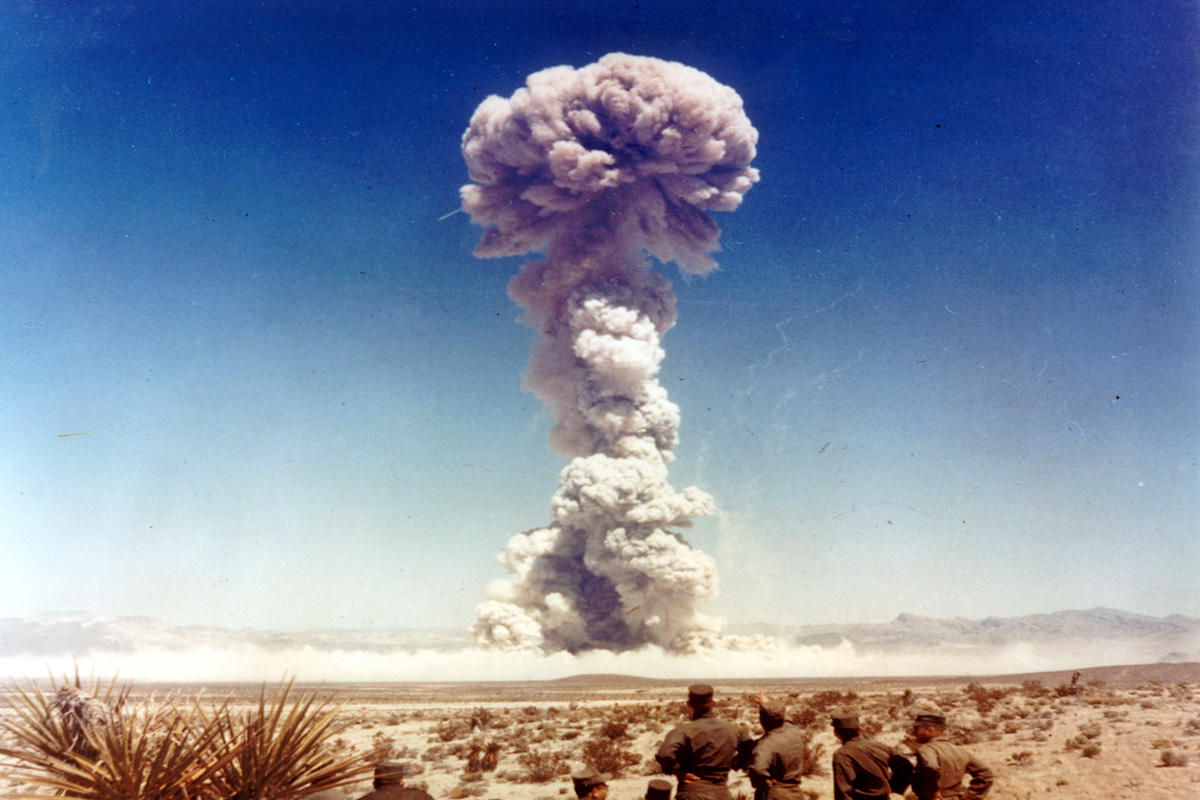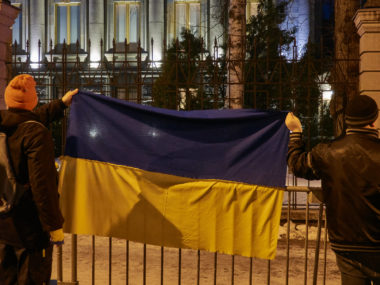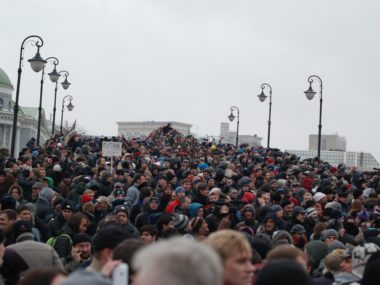By Andrew Kydd
The acquittal of George Zimmerman in the killing of Trayvon Martin highlights an interesting change underway in the legal treatment of private violence in America. Historically, an important goal of states has been to eliminate as far as possible the private use of violence within their territories. Weber even famously defined states as organizations with a monopoly of the legitimate use of force. In areas with weak states, private organizations would still take the law into their own hands. On the Scottish highlands clans still built fortified houses into the 1500’s, long after the practice had been abandoned as unnecessary in England, because they also continued to raid each other’s farmsteads, murder the inhabitants and steal their possessions. But once the rule of law was imposed, the raids ceased and the castles became quaint relics of a bygone era. The pattern can be seen around the globe: where the state is weak, private violence flourishes.
The United States is now embarked on an unprecedented experiment, in that it is a strong state, fully capable of suppressing private violence, but it is increasingly choosing not to. Freely elected state legislatures are enacting laws to encourage people to own and carry guns. New ‘stand your ground’ and self-defense provisions are being passed and interpreted to make it much easier to kill someone without legal penalty. It is now possible to arm oneself, pursue a stranger in a public place, engage in a confrontation with that person, and then if they throw a punch, possibly in response to one’s own, to shoot them dead with impunity as far as the state is concerned. By encouraging private armament and weakening the penalties for private violence, the US is entering new territory, as a strong state that no longer chooses to prevent private bloodshed.
An implication of this process that has so far been underappreciated is that as private violence becomes more widespread, it will become increasingly organized, if still on private lines. Fantasists of the libertarian right and the anarchist left alike are prey to the same delusion, that is, that the absence of the state will lead to a paradise for individuals. In fact the absence of the state leads to the tyranny of smaller scale private organizations and the disempowerment of the individual. In places like medieval Europe, Sicily or Afghanistan, unaffiliated individuals are easy prey and quickly seek the protection of local strongmen. That protection is not free, in fact it is usually very expensive. There is no reason to think the same will not happen when the state voluntarily stops punishing private violence. In fact one can anticipate the full spectrum of responses to anarchy that have been displayed in other settings. The rich will employ private mercenary forces to provide security, as their forebears have done since time immemorial. The poor will join gangs that offer protection in exchange for loyalty and military service. The middle class will form vigilante organizations based on localities. Clans or extended families may return to prominence, as kinship ties form an excellent basis for the management of small-scale violence.
What this will look like in the context of a state that could but doesn’t prevent violence is uncertain. Perhaps the state will step in to curb larger scale organizations. However, it seems unlikely that the armed individual will have much ability to defend him or herself. Instead, predation by one organization will be kept in check only by an equally strong opposing organization. Gang warfare in urban areas is a harbinger, but street gangs will find the terrain contested not just by other gangs, but by vigilante groups, clans and the private security firms of the rich. Retaliatory killing will be the primary deterrent to murder, and indeed it will be all quite justifiable as self-defense because the organizations will pose real and imminent threats to each other. Hobbes thought an absolute sovereign preferable to such a condition. A well-functioning democracy that outlaws murder would be better than either.







14 comments
There are two problems with this analysis.
First, the murder rate (including gun-related homicides) has decreased by about 30-40% in the US over the past two decades even as gun ownership has increased.
Second, the Zimmerman case did not involve the Stand Your Ground law nor a new self-defense law. His self-defense case was based upon long-standing Florida law which is similar to that in many other states.
For a debate about the homicide rate in Florida since SYG see the Monkey Cage.
I assume from your response you are in agreement with the two points I made in my prior comment.
I’d already read the Monkey Cage post and the embedded links and, in particular, found the analysis by Anton Strezhnev useful. I only recently became familiar with SYG and am still trying to educate myself about it, so put me in the “undecided” column for now, or perhaps more precisely, I am not yet convinced they are a good public policy idea. I am, however, a strong advocate of traditional self-defense concepts and believe that attempts to limit its use are wrong, such as the drastic legal changes in the UK in the late 90s, since which we’ve seen an upsurge in violent crime even as homeowners are prosecuted for trying to protect themselves. Similarly the drastic reduction in legal gun permits under the changes in Massachusetts law is correlated with a 90% increase in gun-related homicides since their enactment.
The other thing I’d point out is that reading the links in the Monkey Cage post, whatever impact SYG is having, it is in the context of a continued decline in Florida’s violent crime rate which would seem to run counter to your overall thesis.
While I agree with you that it is a fantasy in parts of both the right and left that the absence of the state will lead to an individual paradise, the reality is that we have a large, and growing, police and surveillance state. I wouldn’t worry about the health of the state.
A couple of points. First, gun ownership actually seems to be decreasing, in terms of the number of households who have guns. One possible explanation is that fewer people are buying more guns. This, along with the decline in the homicide rate may seem contrary to what I am arguing above. However the piece is a warning about the potential future consequences of a course we seem to be embarked on, making it easier to get away with murder. Basic economic theory suggests that when you decriminalize something it becomes cheaper and more widely consumed. The effects of this change may be gradual and hard to measure at first. It may be confined to people who already have guns and motivations to use them, such as criminals and vigilantes, for some time. But the threat to individual security they pose and the perception that the state will no longer effectively provide security will force ordinary non-gun-enthusiasts to take precautions of some kind, either arming themselves or seeking the protection of private organizations of the kind I mentioned. Hopefully it will not get to this point.
On the state, I am not worrying about the health of the state. That’s the new feature here, you have a healthy state taking a hands off attitude towards private violence. Although see the recent post in the New Yorker for an argument about the historical roots of SYG.
After thinking about it I am less concerned than you about the likelihood of the macro consequences you posit (privatized violence) but your raising of the issue is useful as I had not factored that possibility into my thinking which I will keep in mind going forward. Right now my hesitation about the wisdom of SYG is, in part, based upon the actual long-term decline in violent crime so the pressing need to change the existing traditional law of self-defense is not yet evident to me.
This is a fascinating new trend, reversing long-standing trends in western societies. WHy is this happening in the US? Does it benefit one or more powerful groups? Or is this some form of ideological evolution driving social and legal change?
As you note, the drive to expand concealed carry — and now open carry — seems odd given falling rates of both gun ownership and crime.
The historian Martin van Creveld wrote “The Rise & Decline of the State” in 1999. One symptom he pointed to was the rise of private security forces in the US, which now substantially outnumber police. Perhaps this is the next stage — which will in turn further the growth of private security.
It was not that long ago that celebrities — the wealthy, actors, politicians, business leaders — would travel accompanied only by flacks. Now they have layers of security, and the President travels with a praetorian guard.
I think the Zimmerman decision has more to do with old-fashioned racial bias than any aspect of Florida’s legal system. If the half-Peruvian Zimmerman had killed a white boy named Travis Martin he’d be in jail right now, another talking point in the fight against immigration reform (though it would have been very unlikely that would have ever happened). SYG may have given the defense a better case, but nobody should be surprised a court in the U.S.A. ruled not guilty in the homicide of a young black male.